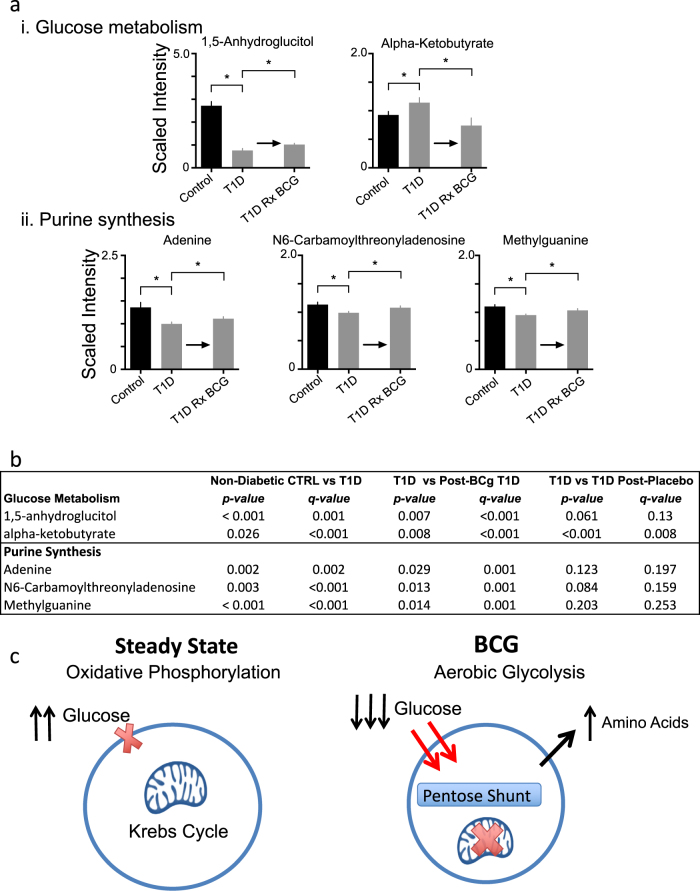Fig. 3.
BCG treatment switches cellular metabolism from oxidative phosphorylation to early aerobic glycolysis. a, b Metabolomic comparisons of the relative levels of intermediates of glucose metabolism and purine synthesis for non-diabetic controls, untreated T1D subjects and T1D patients after treatment with BCG or placebo (sampled biweekly from week 7 to 20 and then yearly through year 5). The results indicate that glucose metabolism is shifted towards aerobic glycolysis in the BCG treated T1D. Asterisks indicate statistically significant differences, which are listed in Fig. 3b. For all metabolomics data, we used an unpaired one-tail Student’s t-test that was then corrected for the multiple comparisons with p and q values. p values are given in Fig. 3b. Note that q values maintained significance for the T1D results for the BCG treated cohorts. c The systemic lowering of blood sugars in T1Ds after BCG vaccines combined with the increased glucose uptake and purine synthesis is consistent with BCG switching cellular metabolism to early aerobic glycolysis. This hypothesis holds that BCG causes downregulation of the Krebs cycle, accelerated aerobic glycolysis, increased glucose uptake, and shunting of glucose to the Pentose Phosphate Shunt for augmented purine biosynthesis

